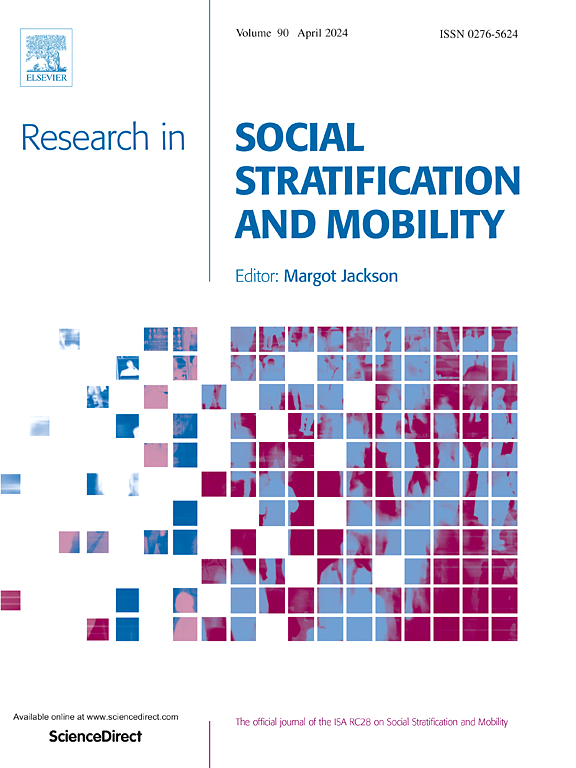Doing gender and the surname choices of married women
IF 2
1区 社会学
Q1 SOCIOLOGY
引用次数: 0
Abstract
Marital surname choices reflect deeply embedded, often unspoken gender norms. According to the marital exchange/bargaining approach, women are more likely to adopt their husband’s surname when they have lower status—measured by education or earnings—relative to their spouse. In contrast, the compensatory gender display approach suggests that women may also take their husband’s name when their status exceeds their husband’s, to compensate for their deviation from traditional gender roles. Using natality data from 2000 to 2021, we find consistent evidence supporting compensatory gender display. Women in different-sex marriages are more likely to take their husband’s surname both when they have lower and higher educational status than their husband, with the likelihood increasing as the educational gap grows. Notably, wives with more education than their husbands have remained especially likely to adopt their husband’s name over the past two decades—even as women have increasingly outpaced men in educational attainment and such marriages have become more common. These findings highlight the enduring power of gendered expectations and reveal how traditional gender norms continue to reinforce male dominance in the symbolic realm of naming, despite women’s rising status.
做性别和已婚妇女的姓氏选择
夫妻姓氏的选择反映了根深蒂固的、往往是不言而喻的性别规范。根据婚姻交换/讨价还价的方式,当女性的地位(以教育或收入衡量)低于其配偶时,她们更有可能采用丈夫的姓氏。与此相反,补偿性性别显示方法表明,当女性的地位超过丈夫时,她们也可能随丈夫的姓,以补偿她们对传统性别角色的偏离。利用2000年至2021年的出生数据,我们发现了支持补偿性性别表现的一致证据。在不同性别的婚姻中,女性无论受教育程度比丈夫低还是高,都更有可能随丈夫的姓,这种可能性随着受教育程度差距的扩大而增加。值得注意的是,在过去20年里,受教育程度高于丈夫的妻子尤其有可能随丈夫的姓——尽管女性的受教育程度日益超过男性,这种婚姻也变得越来越普遍。这些发现突出了性别期望的持久力量,并揭示了传统的性别规范如何继续加强男性在命名的象征性领域的主导地位,尽管女性的地位不断上升。
本文章由计算机程序翻译,如有差异,请以英文原文为准。
求助全文
约1分钟内获得全文
求助全文
来源期刊
CiteScore
7.80
自引率
6.00%
发文量
46
期刊介绍:
The study of social inequality is and has been one of the central preoccupations of social scientists. Research in Social Stratification and Mobility is dedicated to publishing the highest, most innovative research on issues of social inequality from a broad diversity of theoretical and methodological perspectives. The journal is also dedicated to cutting edge summaries of prior research and fruitful exchanges that will stimulate future research on issues of social inequality. The study of social inequality is and has been one of the central preoccupations of social scientists.

 求助内容:
求助内容: 应助结果提醒方式:
应助结果提醒方式:


